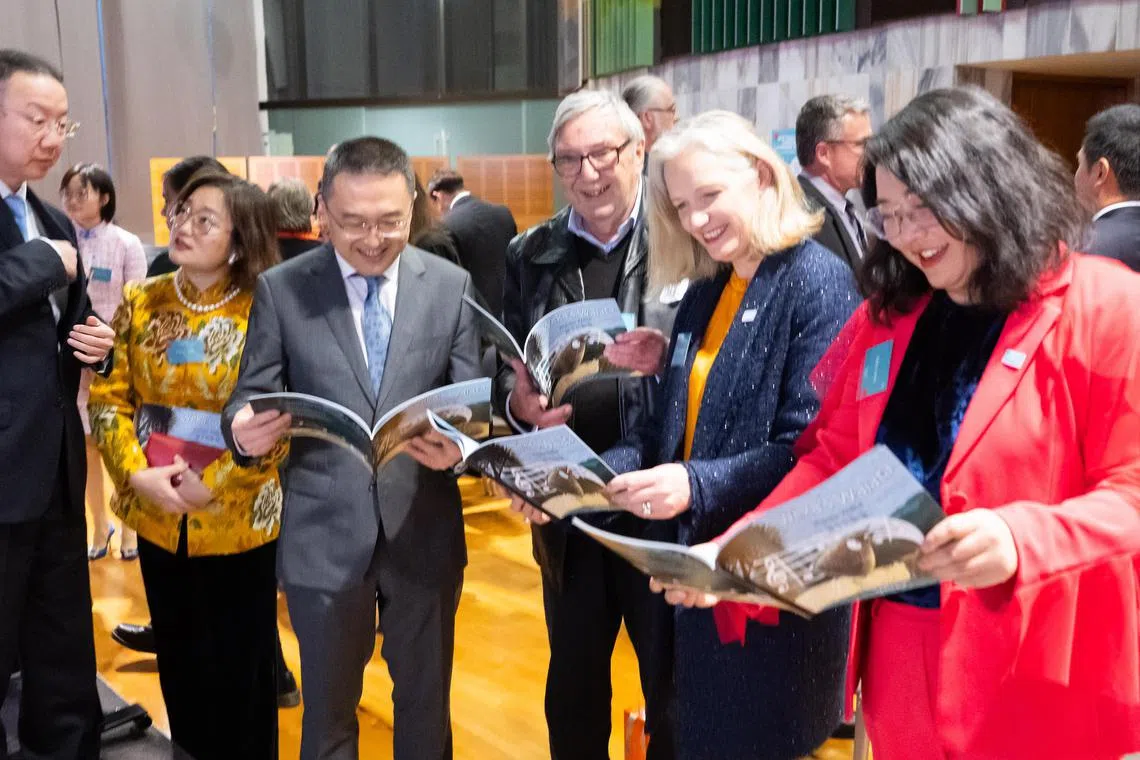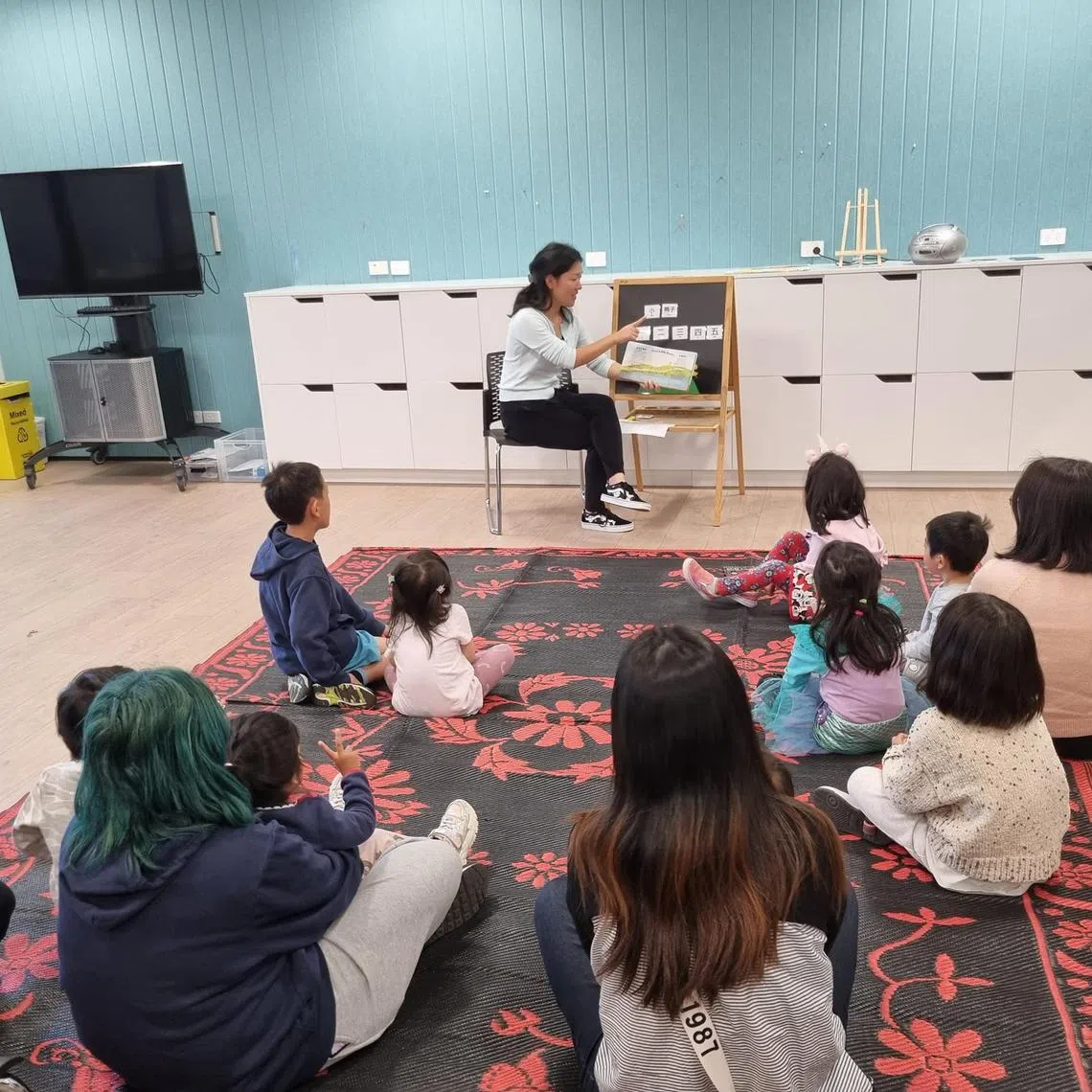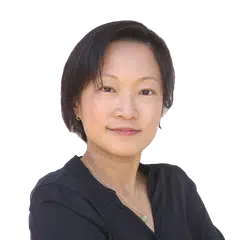‘Helpful to learn about Chinese culture’: New Zealand presses on with Chinese language campaign
Sign up now: Get insights on Asia's fast-moving developments

Ms Jo Coughlan (second from right) reading the trilingual children’s book Weka’s Waiata with guests at the launch of New Zealand Chinese Language Week, at the Beehive’s banquet hall, on Sept 18.
PHOTO: NZCLW CHARITABLE TRUST
Follow topic:
WELLINGTON – For 27-year-old New Zealander Briar Topp, learning Chinese has brought her opportunities both in school and at work.
She picked up the Chinese language in high school due to her love for learning new languages, and that has won her scholarships to go on exchange programmes to China, which further honed her proficiency.
She had also enjoyed practising her Mandarin with her Singaporean best friend.
Now a fluent speaker, the executive assistant at an investment firm said: “Nearly every door that has opened in my career has been partially due to my proficiency in Mandarin.”
She has found work as a tour guide for Chinese tourists while studying at a university in Dunedin and landed a job at an investment firm because her Mandarin skills enabled her to work with Chinese clients. She has even interned at a China-Germany start-up in Berlin that required her to use English and Mandarin.
“Not only is my competency in the language useful, (but) it also gave me an understanding of Chinese culture and business customs from my time living and working in China,” she said in an interview with The Straits Times.
Ms Topp also speaks basic French and German, and is currently learning Cantonese and Arabic. She is also speaking Mandarin to her one-year-old son in the hope of giving him a head start in learning Chinese.
Ms Topp is one of New Zealand’s “Chinese Language Superstars” – language ambassadors who share their Chinese learning journey as part of the country’s Chinese Language Week, which runs from Sept 17 to 23 this year.
Now in its ninth year, New Zealand Chinese Language Week (NZCLW) was officially launched on Monday at the Beehive’s banquet hall, within the parliamentary complex.
Having followed its activities in past years, Ms Topp hopes to inspire other New Zealanders to learn Chinese.
This week, posters teaching basic Mandarin greetings such as nihao (hello) and xiexie (thank you) are being distributed to public places, including schools and libraries in New Zealand, while politicians, mayors and community leaders are posting online videos urging people to “give Chinese a go”, referring to Mandarin and other Chinese dialects.
According to its organiser, the Chinese language campaign is the first of its kind in any Western country. It was started by former Labour Member of Parliament Raymond Huo and businesswoman Jo Coughlan.
Speaking to ST last week, Ms Coughlan, 55, a public communications specialist, recalled being approached by Mr Huo in 2013 to help set up and co-chair the New Zealand Chinese Language Week Charitable Trust, which is behind the nationwide Chinese language promotion drive.
She is still serving as the chair of the trust today.
“Over the last 10 years, New Zealand-China relations have grown exponentially. China is now our biggest trading partner. We go there on delegations, and we don’t even know how to say hello. It becomes obvious that it will be helpful for Kiwis to learn about Chinese language and culture,” she said.
That prompted the launch of the annual Chinese Language Week in 2014. The only language campaigns in New Zealand at that time were the government-driven Maori Language Week and Pacific Languages Week.
Bilateral trade reached NZ$40.3 billion (S$32.8 billion) in 2022.
During the week-long campaign, there will be story time in Mandarin and Cantonese, as well as cultural workshops like calligraphy, at public libraries and community spaces around the country. Schools organise their own activities to promote the Chinese language and culture to students.
Data from the Ministry of Education indicates an almost twofold increase in the number of students learning Chinese in secondary schools between 2013 and 2020.
However, although more secondary schools are now teaching Chinese, the percentage of students choosing Chinese as a subject is still small – less than 2 per cent, numbering about 5,000 – and behind other foreign languages such as French, Japanese and Spanish. The ministry does not have data for primary schools.
According to the 2018 Census, about a quarter million New Zealanders identified themselves as Chinese.
Mandarin is the fourth most spoken language in the country, after English, Maori and Samoan, while Cantonese is ranked seventh. The number of Mandarin speakers is almost twice that of Cantonese.

Mandarin and Cantonese story-telling activities are held in various public libraries around the country during New Zealand Chinese Language Week, such as this one in Auckland on Sept 17.
PHOTO: LANGUAGE MONKEY
Ms Coughlan emphasised that it was always the intention of NZCLW to reflect the diversity of Chinese languages or dialects. This year, NZCLW also posted videos online of people learning to speak Cantonese, Hokkien and Shanghainese.
While Ms Coughlan does not speak any foreign languages herself, she wants to encourage young New Zealanders, including her own children, to do so. Her 28-year-old daughter spent a year learning Mandarin in Beijing in 2019.
Asked to rate NZCLW’s achievements over the nine years, Ms Coughlan said she was heartened to see participation in the annual Chinese Language Week growing over the years. It reached out to over 600,000 individuals on Facebook and Instagram in 2022.
“People seem to enjoy the week and think it is worthwhile, and they continue to participate. We have support from the Prime Minister, from the leader of the opposition, from mayors and councillors across New Zealand. We have support from schools across the country,” Ms Coughlan said.
Run on a small budget of about NZ$200,000 to NZ$300,000 a year, NZCLW receives funding support from the Ministry for Ethnic Communities and government-affiliated non-governmental organisations. Other sponsors for 2023 include well-known corporates such as Fonterra and ANZ.
One notable sponsor is the Centre for Language Education and Cooperation (Clec), formerly known as Hanban, or Confucian Institute Headquarters, which is affiliated with the Chinese government.
Ms Coughlan declined to reveal the size of funding from China, explaining that the trust is not required to provide breakdowns in its audited accounts filed with the Charities Register each year.
Stressing the independence of the charitable trust whose current and past trustees hail from New Zealand’s academic, diplomatic, business and tourism sectors, Ms Coughlan explained that the support for Clec stemmed from the three Confucian Institutes embedded in the three local universities, which have been providing support for Chinese language teaching in schools, such as supplying Mandarin language assistants to help local teachers.
Dr Wang Danping, senior lecturer of Asian studies from the University of Auckland, said while there was a notable surge in the uptake of Chinese language learning between the 2000s and 2010s nationwide, particularly in primary schools, there has since been a steady decline in the study of almost all foreign languages in secondary schools and universities.
Dr Wang, who recently published her research on 70 years of Chinese language education in New Zealand, told ST that in universities across the country, enrolment in Chinese language programmes has dropped by about 40 per cent between 2010 and 2019. This is part of an ongoing trend of shrinking language programmes in English-speaking countries, made worse by budget deficits at educational institutions.
The Chinese curriculum was officially introduced in schools in 1995, she said, and expressed appreciation of the efforts of NZCLW in encouraging the learning of the language.
New Zealand is not alone in promoting Chinese, with Saudi Arabia in August making Mandarin classes compulsory in secondary schools amid stronger ties with China.


